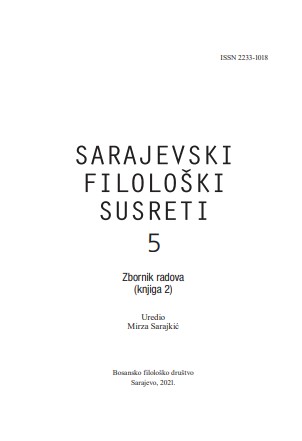Nadomak optimalne projekcije: Jugoslavija i opća teorija avangarde
Close to Optimal Projection: Yugoslavia and the General Theory of the Avant-Garde
Author(s): Lujo ParežaninSubject(s): Cultural history, Studies of Literature, History of ideas, Bosnian Literature, Croatian Literature, Macedonian Literature, Montenegrine Literature, Serbian Literature, Slovenian Literature, Sociology of Culture, Sociology of the arts, business, education
Published by: Bosansko filološko društvo
Keywords: avant-garde; neo-avant-garde; post-avant-garde; theory of the avant-garde; Yugoslavia; socialism; historical avant-garde; residual and archaic culture;
Summary/Abstract: As the fundamental text for the study of artistic and literary avantgardes, Bürger’s Theory of the Avant-garde has been the subject of a wide and diverse critical reception. An especially contentious claim of Bürger’s is the one about the failure of neo-avant-garde art – a claim that cannot be separated from of his category of historical avant-gardes and the claim about the defeat of the pre-war avant-garde movements. Missing the construction of Bürger’s argumentation, different critics have pointed to different post-war artists and artistic movements which, through their work, revitalized avant-garde poetics with more or less success. However, by staying in the same framework of the Euroamerican capitalist West and its artistic system, these counterexamples could not offer a systemic intervention into Bürger’s theory. Due to its specific historical, social, and therefore cultural and artistic trajectory, the experience of Yugoslavia represents one of the possible points of departure for such an intervention. By focusing on existing interpretations of the relation between the Yugoslav avant-garde, neo-avant-garde and post-avant-garde, this article aims to show how the unique relation of the post-war avant-garde towards its tradition can contribute to the critical supplementation of Bürger’s theory and a more nuanced understanding of the possible relations between the neo-avantgarde and the avant-garde. In that sense, this article will try to show how the Yugoslav example is indispensable to a relevant discussion of artistic avantgardes in general.
Journal: Sarajevski filološki susreti: zbornik radova
- Issue Year: 5/2020
- Issue No: 2
- Page Range: 149-165
- Page Count: 17
- Language: Croatian

